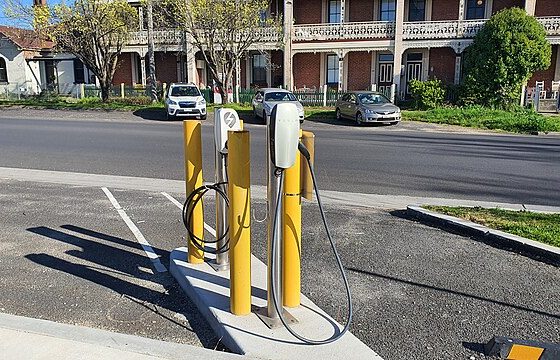Electric vehicle (EV) chargers have a high malfunction rate while charging infrastructure remains inadequate in some areas, according to a new study by the Harvard Business School (HBS).
The HBS study used artificial intelligence to examine more than one million customer reviews of charging stations from North America, Europe and Asia over 10 years, finding that EV drivers can expect non-residential charging systems to not work approximately 20% of the time and also that some of America’s more rural regions are effectively “charging deserts.” Its findings are the latest to suggest that the Biden administration’s long-term vision for an EV-dominated future is struggling to make early progress.
“Among other things, the deep dive into tomorrow’s gas station network estimates that drivers can successfully recharge their cars using non-residential EV equipment only 78% of the time, highlighting critical issues with reliability,” reads an article on the study posted to HBS’ website. “The research proves that frustration extends beyond ‘range anxiety,’ the common fear that EV batteries won’t maintain enough charge to reach a destination.”
Buttigieg says you don’t have to worry about gas prices if you buy an electric vehicle…someone should remind him how out of touch he sounds pic.twitter.com/tiJVkl7wB3
— Daily Caller (@DailyCaller) March 7, 2022
Charger reliability, and perceptions thereof among consumers, have proven to be a stubborn obstacle for EV adoption.
“Imagine if you go to a traditional gas station and two out of 10 times the pumps are out of order,” “Consumers would revolt.”
Additionally, the HBS study also identified consumers’ uneasiness about inconsistent and opaque pricing when they go to charge up their EVs. HBS characterizes the pricing environment examined by the study as a “Wild West,” with consumers often left guessing as to how much they will have to pay to recharge.
The Biden administration, meanwhile, is forging ahead with its aggressive EV push. Federal agencies have issued severalstringent regulations that will significantly increase the share of EVs manufacturers sell over the next decade, and the administration also unleashed billions of dollars to facilitate EV production and adoption.
The White House has stated its goal of having EVs make up 50% of all new car sales by 2030, a goal that will require a massive buildout of public EV charging stations. Congress gave the administration $7.5 billion in the 2021 Infrastructure Investment and Jobs Act to construct public EV chargers, but that program has to date only led to a handful of stations coming online.
Administration officials, including Transportation Secretary Pete Buttigieg, have defended the program and its progress to date. Congressional Republicans have expressed skepticism that the program is rolling out according to plan.
One factor that has apparently slowed progress on the $7.5 billion program is the Biden administration’s insistence that prospective grantees ensure their work advances diversity, equity and inclusion.
‘It’s Absolutely Pathetic’: Swing-State Autoworkers Tell CNN ‘Deteriorated’ Economy, EV Mandate Drive Them To Vote Trump pic.twitter.com/ydUn3Xcftl
— Daily Caller (@DailyCaller) June 12, 2024
Currently, most of the country’s EV charging infrastructure is concentrated in coastal, more densely-populated regions of the U.S. while more rural regions in the heartland lag behind, according to the Department of Energy (DOE).
“Public charging stations are not equally distributed across the U.S., concentrated more heavily in large population centers and wealthy communities and less so in rural areas and smaller cities,” the HBS article reads. “The result is that drivers have disparate experiences, well-served in some areas and starved in others. Some parts of the country have become ‘charging deserts,’ with no station at all.”
Specifically, counties in Washington state and Virginia do not have a single public charger and have actually lost previously-available chargers, according to the article. The study also notes that some EV drivers have had problems with internal combustion engine vehicle drivers parking in EV charger parking spots, thereby denying access to the chargers.
The study is the latest in a string of recent papers and surveys suggesting that the administration’s EV agenda is struggling to gain traction in its early stages. A recently-published McKinsey and Company analysis found that nearly half of American EV owners want to purchase an internal combustion engine vehicle the next time they go car shopping, and nearly half of all respondents in an Associated Press poll released in June indicated that they are unlikely to consider an EV for their next car purchase.
“It’s different than what any one company or network would want you to believe,” , who is also affiliated with Georgia Institute of Technology. “I couldn’t even convince my mother to buy an EV recently. Her decision wasn’t about the price. She said charging isn’t convenient enough yet to justify learning an entirely new way of driving.”
Neither the Department of Transportation nor the DOE responded immediately to requests for comment.












